Our team of experts provides high quality scientific editing, writing, strategic insight, and advice.
Directors
-
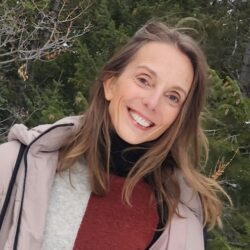
Angela Andersen, CEO

Angela Andersen, CEO
Angela obtained her Ph.D. in Molecular Genetics at the University of Toronto, Canada, studying catalytic RNA and RNA folding. Her postdoctoral research focused on X chromosome inactivation at the University of California, San Francisco, CA. She has additional research experience studying signaling and epigenetics in the context of colon cancer and breast cancer metastasis at the Huntsman Cancer Institute, UT and the Oklahoma Medical Research Foundation, OK. Angela has contributed to numerous articles in a variety of fields, including first author publications in Molecular Cell, PNAS, and Nature Structural & Molecular Biology. Before co-founding Life Science Editors in 2015, she was an independent editor and an editor at Cell for four years. She co-founded and co-directs the Life Science Editors Foundation, a charity aiming to achieve equity in the scientific community.
-
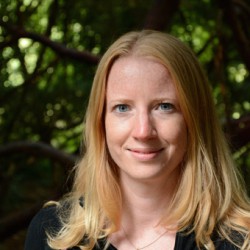
Helen Pickersgill, CEO

Helen Pickersgill, CEO
Helen obtained her Ph.D. in Cell Biology at the Paterson Institute in Manchester, UK working on the structure and function of the nuclear pore complex. She gained postdoctoral experience working first on chromatin organization as a Marie Curie Fellow at the Netherlands Cancer Institute in Amsterdam, The Netherlands, followed by aberrant signaling pathways in cancer at the Whitehead Institute, MA. During her academic career she published as a first author in Cell, Nature Genetics and Journal of Cell Biology. Prior to setting up as an independent editor in 2010 and subsequently co-founding Life Science Editors in 2015, she was an editor at Developmental Cell for a year. More recently she was an editor at Science for five years, including handling papers at Science Translational Medicine. In 2020, she co-founded the Life Science Editors Foundation, a charity aiming to achieve equity in the scientific community.
-
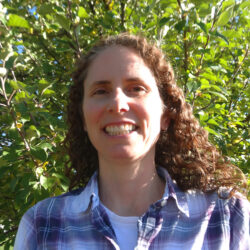
Jennifer Chase, Editorial Director

Jennifer Chase, Editorial Director
Jen obtained her M.Sc. in Immunology at Dalhousie University, Canada, studying the co-stimulatory requirements of naïve T-cell activation. She went on to work in cancer research in both academic and industry settings before taking a position at Rocky Mountain Laboratories (NIH) studying the innate immune response to the bacterial pathogen, F. tularensis. She joined Life Science Editors in 2021.
Scientific Editors
Our Scientific Editors have experience as journal editors, grant specialists and/or in research development. They have substantial expertise in peer review and strategic communication.
-
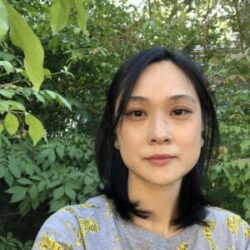
Marie Bao

Marie Bao
Marie obtained her Ph.D. in Biochemistry and Molecular Biology at University of California, San Francisco, where she studied specificity in MAP kinase signaling. She has contributed to and published as a first author in Cell. Marie was an editor at Cell Press for eleven years, beginning at Cell‘s Leading Edge reviews section for a year before moving to Developmental Cell, where she was Editor-in-Chief for nearly 5 years. Currently, Marie is the Director of Research Administration in the department of Biological Chemistry and Molecular Pharmacology at Harvard Medical School. She joined Life Science Editors in 2020.
-
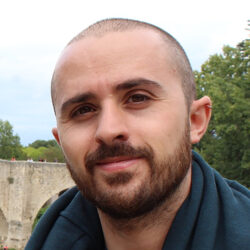
Abel Barral Cuesta

Abel Barral Cuesta
Abel obtained his Ph.D. at the Université Claude Bernard Lyon 1, France, and conducted postdoctoral research at the CNRS, focusing on the feedbacks between plant ecophysiology and atmospheric CO2 concentration at geological timescales. Based on a multidisciplinary training in Biology (BSc) and Ecology (MSc), his research also led to describing some of the earliest known angiosperms and reconstructing the structure and evolution of plant palaeocommunities. In 2019, Abel started his editorial career at the Nature portfolio, working as a scientific editor for Nature Plants and Nature Ecology & Evolution and freelancing for Nature Communications. He then joined Cell Press, where he has been a scientific editor at iScience and One Earth. During these experiences Abel has gathered extensive experience in handling manuscripts across the broad Plant Sciences, Ecology & Evolution and Sustainability areas. He joined Life Science Editors in 2024.
-
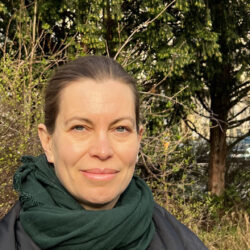
Natascha Bushati

Natascha Bushati
Natascha obtained her Ph.D. from the European Molecular Biology Laboratory, Heidelberg, Germany, studying the roles of microRNAs in Drosophila development. Prior to her Ph.D. she studied cytokinesis in C. elegans at the Research Institute of Molecular Pathology (IMP) in Vienna. After a short period as a postdoctoral researcher at Temasek Life Sciences Laboratory in Singapore, Natascha carried out postdoctoral work at the MRC National Institute for Medical Research in London, UK, studying the gene regulatory networks underlying neural tube progenitor specification in chick embryos. Natascha started her editorial career in 2012 at EMBO Molecular Medicine before moving to Nature Communications and Nature Cell Biology. In 2017 Natascha returned to Nature Communications, where she was the Chief Editor of the Cell and Developmental Biology team for nearly 5 years. She currently works as a freelance scientific editor and joined Life Science Editors in 2024.
-
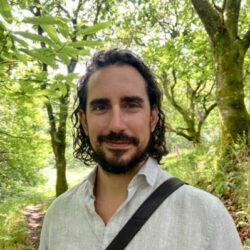
Javier Carmona Sanz

Javier Carmona Sanz
Javier obtained his Ph.D. in Molecular Biology from the Autonomous University of Madrid, Spain, studying alterations in DNA methylation in cancer metastasis in the lab of Manel Esteller. For his postdoc, he joined the lab of José Baselga at Memorial Sloan-Kettering Cancer Center in New York City, USA, where he focused on investigating mechanisms of resistance to therapy in patients with HER2-driven breast cancer. Throughout his Ph.D. and postdoc career, Javier has contributed to more than 30 articles in different areas of research and has written several pieces for science communication blogs. In 2016, Javier joined Nature Medicine as a scientific editor handling manuscripts in translational cancer research, clinical oncology and artificial intelligence in biomedicine, and in 2019 became Deputy Editor at the journal. During this time, he also collaborated as freelance editor for other journals in the Nature portfolio, such as Nature Communications, Nature Cell Biology and npj Precision Oncology. Currently he works as Scientific Strategy Officer at Vall d’Hebron Institute of Oncology (VHIO) in Barcelona, Spain. He joined Life Science Editors as an Editor in 2022.
-
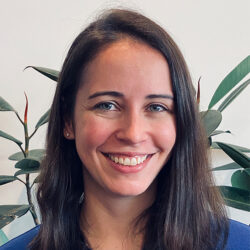
Stacie Dodgson

Stacie Dodgson
Stacie obtained her Ph.D. in Biology at the Massachusetts Institute of Technology, where she studied the cellular effects of aneuploidy. She transitioned to immunology as a postdoctoral researcher at the Broad Institute, studying host-pathogen interactions and mechanisms of autoimmunity. Stacie was an editor at Cell for 3 years, where she worked closely with the genetics and immunology communities, while editing papers across the full journal scope of biology and biomedicine. As an editor, she launched the “Faces of Cell” Initiative to spotlight authors belonging to marginalized groups. Currently, Stacie is the Scientific Strategy Manager of the Gladstone-UCSF Institute of Genomic Immunology. She joined Life Science Editors in 2021.
-
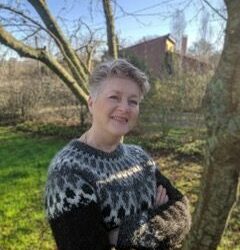
Carol Featherstone

Carol Featherstone
Carol received a Ph.D. from the University of Birmingham where she worked on smooth muscle biochemistry. She performed postdoctoral research in cell biology at the EMBL in Heidelberg, at Johns Hopkins School of Medicine in Baltimore and at the Scripps Research Institute in La Jolla. She has first-author papers in the Journal of Cell Biology and Nature. Carol is the founding editor of Trends in Cell Biology. Later, she worked as a freelance science writer, publishing in Science, The Lancet, New Scientist etc., and as an Information Specialist at the Wellcome–CRC Institute in Cambridge. Carol produced an online magazine, The ELSO Gazette, for the European Life Scientist Organisation, and was involved in science policy and career development with ELSO. Since 2010, she has been working freelance as an editor, science writer and trainer of early career scientists and was a consultant for PLoS Biology. Carol is fluent in French. She joined Life Science Editors in 2020.
-
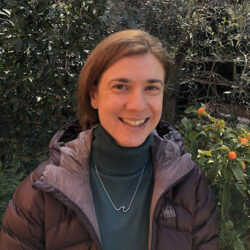
Elvira Forte

Elvira Forte
Elvira received her Ph.D. in Pasteurian Sciences from the Institut Pasteur-Cenci Bolognetti foundation in Rome, Italy, under the supervision of Prof. Alessandro Giacomello and in collaboration with Prof. Mark Mercola in San Diego, USA, where she studied the role of TGFß-mediated epithelial-to-mesenchymal transition in cardiospheres’ formation from cardiac stromal cells. As a post-doc, she joined the lab of Prof. Richard Harvey in Sydney, Australia, to study the origin and function of a subset of PDGFRa+ stromal cells with plastic properties. She then relocated to the Jackson Laboratory, Bar Harbor, USA, in the lab of Prof. Nadia Rosenthal as a Research Fellow and Associate Research Scientist, where she studied cardiac fibrosis and the genetic basis of cardiovascular diseases. Elvira has contributed to over 30 peer-reviewed publications including first author publications in Cell Reports, Circulation, eLife, Nature Reviews Cardiology. She joined Nature Cardiovascular Research in 2021 as one of the launching editors, and she handled manuscripts in the fields of cardiac, vascular, and blood biology, covering fundamental, translational, clinical, and public health research. She joined Life Science Editors in 2024.
-
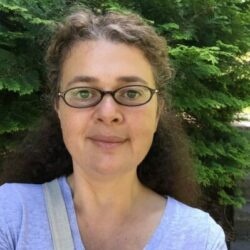
Milka Kostic

Milka Kostic
Milka obtained her Ph.D. in Chemistry from Brandeis University in Waltham, MA, USA. Her Ph.D. research was focused on biomolecular nuclear magnetic resonance (NMR) spectroscopy and developing new NMR methods to study metalloproteins. Her postdoctoral work in the Department of Molecular Biology at The Scripps Research Institute, La Jolla, CA, USA applied NMR spectroscopy and other biochemical and biophysical methods to study tumor suppressor p53 biology. After completing her postdoc, she joined Cell Press and served as the Editor of Structure and Cell Chemical Biology (previously published as Chemistry & Biology) for a decade. Currently, she is the Program Director, Chemical Biology at the Dana-Farber Cancer Institute. She joined Life Science Editors as an Editor in 2019.
-
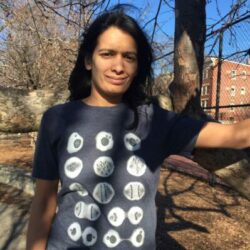
Sabbi Lall

Sabbi Lall
Sabbi obtained her DPhil in Biochemistry at the University of Oxford, UK, studying developmental genetics. Her postdoctoral research focused on microRNA-mediated regulation at New York University, NY. Sabbi has helped to developmentally edit manuscripts and grants across fields including evolutionary biology, immunology, neurobiology and psychology. Prior to joining Life Science Editors, Sabbi spent 5 years at Nature Publishing Group and 5 years at Cell Press, where she was the Editor-in-Chief of Cell Reports. She joined Life Science Editors in 2020.
-
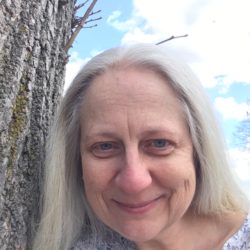
Christina (Kiki) Lilliehook

Christina (Kiki) Lilliehook
Kiki obtained her Ph.D. in Neurobiology at the Mount Sinai Medical Center (New York City) where she worked on Alzheimer’s disease-related cell biology. Her postdoctoral work investigated angiogenesis and adult neurogenesis in songbirds. Kiki has contributed to numerous articles published in Nature Medicine, Journal of Biological Chemistry, and other journals, with a first author publication in Journal of Neuroscience. She was an editor at Cell Stem Cell for nine years handling papers on all organ systems across the stem cell biology spectrum, before joining the Broad Institute as a program manager. She is now working as a science writer at RA Capital Management. She joined Life Science Editors in 2019.
-
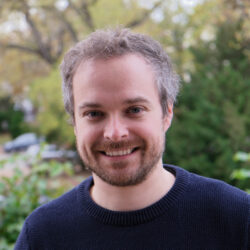
Michele Marass

Michele Marass
Michele obtained his Ph.D. in Cardiovascular Biology from the Max Planck Institute for Heart and Lung Research. While working on his doctorate, he explored several topics such as vascular development, hematopoietic stem cell specification and cardiac regeneration. In addition to multiple articles published in top journals such as Nature, Blood, PNAS and Cell Host & Microbe, he received a patent for an engineered antiangiogenic isoform of VEGF. In 2019, he joined the clinical and translational team at Nature Communications. At Springer Nature, he was the leader of the clinical and pharmaceutical community across Nature Journals and organized Nature Conferences and Nature Masterclasses workshops. Currently, he works as an in-house editorial consultant and publication strategist at the Max Planck Institute of Molecular Cell Biology and Genetics in Dresden. He joined Life Science Editors in 2024. -
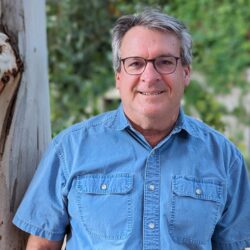
Stephen Matheson

Stephen Matheson
Stephen obtained his Ph.D. in Neuroscience at the University of Arizona, working on cellular mechanisms of neuronal development. His postdoctoral work with Jeffrey Settleman at MGH was focused on signal transduction and mammalian development. After 10 years in academia, where he expanded his interests into genetics and molecular biology, he joined Cell Reports and served there for a decade that included four years as Editor-in-Chief. He then served in editorial leadership at PLOS, and since 2015 he has co-led the annual Scientific Writing Retreat at Cold Spring Harbor Laboratory. He enjoys writing and always has a writing project in the works. Stephen likes all of biology and is especially keen to read and edit papers in neuroscience, development, genetics, genomics, cell biology, and evolutionary biology. Stephen joined Life Science Editors in 2024.
-

Brandi Mattson

Brandi Mattson
Brandi J. Mattson holds a PhD in Neuroscience from Rutgers University and completed postdoctoral training at NIDA and Baylor College of Medicine. She was a group leader in Neocortical Microcircuits and Autism. Her research experiences are peripheral cancer neuroscience, and neurodegenerative and psychiatric diseases. At the Neurodegeneration Consortium, she focuses on portfolio management of the drug discovery pipeline and alliance management with our academic investigators and the drug discovery team. She also coordinates the scientific strategy of the NDC to align with our strategic priorities. At MD Anderson Cancer Center, she manages institutional initiatives in neurotoxicities, Cancer Neuroscience and myeloid cell biology. She has served as a Scientific Editor at Neuron and Life Science Editors. She is an alumna of the Neuroscience Scholars Program and now serves on the Board of this program for the Society for Neuroscience. In addition, she also holds multiple leadership positions as an advisor, mentor, and grant-writing coach for this prestigious program. She serves as the Organizing Chair for multiple meetings, such as the Cancer Neuroscience Symposium, Houston area AD research symposium, and Career Development Panel for the Society for Neuroscience. She has received the Dean’s Dissertation Award and Johnson & Johnson Fellowship for Promising Young Graduate Student while at Rutgers University.PhD. She was the Scientific Manager of The Neurodegeneration Consortium at MD Anderson Cancer Center. She joined Life Science Editors in 2015.
-

April Pawluk

April Pawluk
April obtained her Ph.D. in Biochemistry at the University of Toronto, where she discovered and characterized bacteriophage-encoded inhibitors of CRISPR-Cas systems, known as anti-CRISPRs. She then went on to do a short postdoc at the University of California, Berkeley, investigating how bacterial CRISPR-Cas systems generate new genetic memory and its application a biotechnological tool. April has published research articles in top journals such as Cell, Nature, Nature Microbiology, and mBio. In 2017, she joined Cell as a scientific editor, and went on to lead Cell journal strategy for the cell biology field and organize conferences focused on gene editing, microbial genomics, and single-molecule technologies. April later served as Senior Editor for Molecular Cell and Cell Reports, before leaving Cell Press in 2021 for her current role. She was the Strategic Program Manager for the Harvard Chan Microbiome in Public Health Center. She joined Life Science Editors in 2021.
-
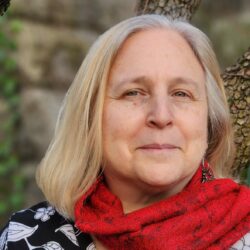
Michelle Ryndak

Michelle Ryndak
Michelle obtained her Ph.D. in Microbiology at Stony Brook University, NY, where she studied mechanisms of bacterial pathogenesis. Her post-doctoral research at the Public Health Research Institute in Newark, NJ, focused on the virulence mechanisms of Mycobacterium tuberculosis, and she expanded on this work at New York University, NY, to include translational research. Prior to joining Life Science Editors, Michelle spent over three years as a Grant and Research Development Associate at Columbia University where she provided grant editing support to scientists across the range of career stages, multiple NIH mechanisms, and a variety of biomedical fields. She joined Life Science Editors in 2024.
-
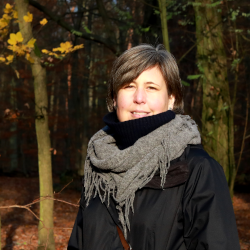
Anke Sparmann

Anke Sparmann
Anke obtained her Ph.D. at the State University of New York at Stony Brook (USA), where she studied the interplay between oncogene-induced tumor growth and inflammation. During a post-doctoral period at the Netherlands Cancer Institute (NKI) in Amsterdam, her work focused on changes of Polycomb-complex composition and chromatin dynamics during neural stem cell differentiation. Anke published as first author in Cancer Cell, Nature Reviews Cancer and The EMBO Journal. After starting her editorial career at The EMBO Journal in 2012, she joined Nature Structural & Molecular Biology in 2014 after a brief interlude at Nature Communications. Since 2021, Anke works as a scientific writer at the Helmholtz Institute for RNA-based Infection Research in Würzburg, Germany, supporting researchers during grant applications, manuscript preparation and the publication process. She joined Life Science Editors in 2022. Image Credit: Elisabetta Citterio.
-
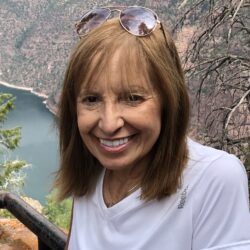
Diana Stafforini

Diana Stafforini
Diana obtained her Ph.D. in Biochemistry at the University of Utah in Salt Lake City, Utah, USA, working on purification and characterization of Platelet-Activating Factor (PAF) acetylhydrolase, a phospholipase A2 involved in inflammation and cancer. She joined the University of Utah Department of Internal Medicine as a faculty member in 1989. She focused her investigations on basic and translational aspects of inflammatory diseases, including cardiovascular, pulmonary, and malignant disorders. During her career, Diana trained many students and published her work in PNAS, Journal of Clinical Investigation, Cancer Research, and Journal of Biological Chemistry. She served as a referee for journals, panel member for NIH study sections, and grant reviewer for the Department of Defense. In 2016, Diana became Associate Director at Huntsman Cancer Institute where she works with the Chief Executive Officer on various projects, including strategic planning, scientific writing, and project management. She joined Life Science Editors in 2020.
-
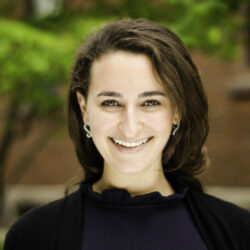
Jenna Sternberg

Jenna Sternberg
Jenna obtained her Ph.D. in Neuroscience from Sorbonne Université, where she characterized and identified a function for detection of cerebrospinal fluid by the nervous system. She went on to complete a short postdoc at Harvard University, studying sensory processing in the gut. From 2019 to 2021, Jenna was a Scientific Editor at Cell Reports, working with authors from across the life sciences, before joining the Broad Institute in 2022. Jenna is currently a science advisor at the Broad and manages a large research collaboration with an industry partner.
-
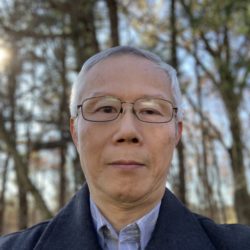
Li-Kuo Su

Li-Kuo Su
Li-Kuo obtained his Ph.D. in Molecular Biology from the University of Pennsylvania studying the transcriptional regulation of the murine immunoglobulin heavy chain locus. He did his postdoctoral research first at the Cold Spring Harbor Laboratory studying the RB family tumor suppressors then at the Johns Hopkins University School of Medicine cloning and characterizing the APC tumor suppressor. Li-Kuo continued his research on cancer biology, focusing on translational research on tumor suppressors, as an Assistant Professor at The University of Texas M. D. Anderson Cancer Center. During his academic career, Li-Kuo contributed to papers published in Science, N. Engl. J. Med., Genes Dev., Am. J. Hum. Genet., EMBO J., J. Biol. Chem., and others. He then was Editor-in-Chief of Cancer Cell for over 16 years, until his retirement. Li-Kuo joined Life Science Editors in 2019.
-
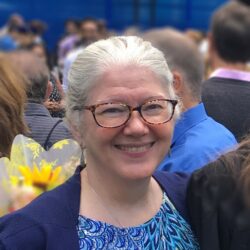
Ellen Wilson

Ellen Wilson
Ellen obtained her Ph.D. at the Institute of Molecular Biology at the University of Oregon, characterizing the regulatory regions of genes transcribed by Polymerase III. She joined Princeton University as a postdoctoral fellow, where she studied genetic regulation of gastrulation in the fruit fly, work that was published in Cell. She next shifted to early development of the zebrafish, studying cell fate choices and gastrulation and publishing her findings in Science, Trends in Genetics, and elsewhere. Subsequently, she won grants from HHMI and NIH to produce internet-based science education curricula and then spent 20 years in Research Development at Huntsman Cancer Institute, an NCI-designated comprehensive cancer center. At HCI, she was an expert in all aspects of the Cancer Center Support Grant (P30) and was an author and scientific editor of that grant, as well as many others designed to fund strategic institutional initiatives. In addition, she contributed to and edited proposals for large, complex, or multi-project grants from HCI’s cancer center members. She joined Life Science Editors in 2021.
-
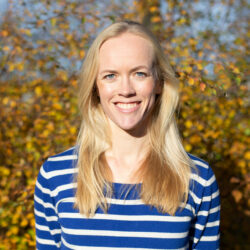
Katrina Woolcock

Katrina Woolcock
Katrina obtained her Ph.D. in Molecular Biology at the Friedrich Miescher Institute for Biomedical Research in Basel, Switzerland, studying the role of the RNA interference (RNAi) machinery in fission yeast gene regulation. As a postdoc at the Institute of Molecular Biotechnology in Vienna, Austria, she continued studying nuclear RNAi mechanisms at a genome-wide level. Katrina has contributed to numerous articles, including first author publications in Nature Structural & Molecular Biology and Genes & Development. Making the switch to science publishing in 2015, she completed a locum position as an editor at Nature Structural & Molecular Biology, and then became a freelance scientific editor and writer. She joined Life Science Editors in 2018.
Associate Editors
Our Associate Editors have Ph.D. and postdoctoral experience, as well as editorial experience or experience at the senior researcher level.
-
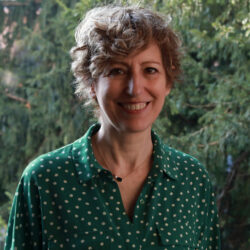
Elisabetta Citterio

Elisabetta Citterio
Elisabetta obtained her Ph.D. in Molecular Genetics from the Erasmus University of Rotterdam, The Netherlands, studying transcription-coupled DNA repair. She did her postdoctoral research at IFOM in Milan, Italy, identifying histone ubiquitin ligases and deubiquitinases in the DNA damage response. She continued to investigate mechanisms of genome maintenance and epigenetics, particularly in the context of hematopoietic stem cell aging and cancer at the Netherlands Cancer Institute in Amsterdam, where she worked as a Vidi principal investigator and research associate for 12 years. She published as first and as senior author in EMBO J., J. Exp. Med., Cell Reports, Current Biology, and others, contributing to papers in Cell, Cancer Cell, Genes Dev., P.N.A.S. Her work has been funded by the Dutch Research Council (NWO) and Dutch Cancer Society (KWF). She served as a reviewer for journals and funding agencies since 2013. Currently, Elisabetta is a research fellow at the University of Milano-Bicocca. In 2019, she initiated “STEM passion“, a project highlighting female scientists. She joined Life Science Editors in January 2024.
-
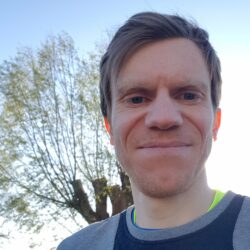
Robert Mahen

Robert Mahen
Rob is an independent research fellow in the MRC Cancer Unit, University of Cambridge, UK. His work focuses on understanding centrosomes; organelles used by cells to sense their environment, move, change shape and divide. He has a PhD from the University of Cambridge and postdoctoral experience from the European Molecular Biology Laboratory Germany and Imperial College London. He has published in journals including PNAS and PLOS Biology, including three single author papers. His work has been funded by the Wellcome Trust, European Molecular Biology Organization (EMBO), German Research Foundation and the Isaac Newton Trust. He joined Life Science Editors in 2021.
-
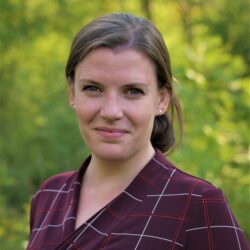
Fiona Manning

Fiona Manning
Fiona obtained her PhD in Experimental Psychology at McMaster University in Canada, where she studied multisensory integration and cognitive neuroscience. She completed a postdoc at Concordia University in neural plasticity and sensorimotor processing. Fiona has been working as a Research and Statistical Consultant over the last few years, specializing in behavioral sciences, research communications, and statistical modeling. She is also the Scientific Director at the Aphantasia Network, managing the research portfolio and collaborations. She joined Life Science Editors in 2022.
-

Olesia North

Olesia North
Ukrainian made, Canadian trained! Olesia obtained her PhD in Biochemistry from the University of Toronto where she studied the determinants of phage specificity and the mechanism of phage tail fibre assembly. Ever since the beginning of her PhD she has been infected with phage enthusiasm, which has multiplied, exploded and is infecting everyone around her. She is currently doing her postdoc at the Brown lab at McMaster University in Canada where she plans on expanding our knowledge of phage/bacteria interactions, or just learning something useful along the way. Olesia published as a first author in different journals, including Nature Microbiology, Journal of Bacteriology and Annals of the New York Academy of Sciences. She also contributed to several other manuscripts. Olesia is passionate about writing and editing because she loves helping people, she loves reading, is a critical reader, and has a natural feel for grammar. There is so much beauty in a well-written manuscript and it’s so exciting to be able to contribute to it! Olesia joined Life Science Editors in 2023.
-
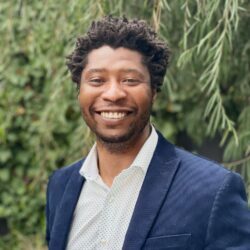
Derick Okwan

Derick Okwan
Derick obtained his M.D., Ph.D. training from Emory University in Atlanta, Georgia, USA. His Ph.D. work in immunology and molecular pathogenesis focused on understanding myeloid immune responses and augmenting host immunity without eliciting aberrant auto-immune sequalae. He is currently an Assistant Professor in the pathology department at Stanford University, where his laboratory studies the role of neutrophils in chronic inflammatory diseases of aging. Derick has contributed to several manuscripts in journals such as Nature Immunology and Science Translational Medicine. Derick enjoys writing and editing, and was successfully awarded the highly competitive NIH Director’s Transformative Research award, among others. He joined Life Science Editors in 2021.
-
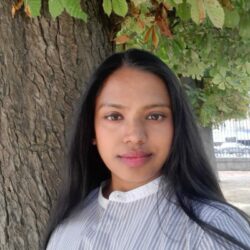
Aruni P. Senaratne

Aruni P. Senaratne
Aruni obtained her PhD in Molecular and Cellular Biology from Sorbonne University. She carried out her doctoral research at Institut Curie (Paris, France), using high-throughput sequencing techniques to characterize the molecular architecture of an unusual centromere type in silk moths and additional Lepidopteran species. Prior to this, Aruni obtained her MSc in Biotechnology with a specialization in Computational Biology from Jawaharlal Nehru University (New Delhi, India). Shortly after her PhD, Aruni joined the Management of Institut Curie’s Research Center as Scientific Writer and Editor. In this current role, her scientific focus has now shifted to Cancer Biology. Aruni joined the Life Science Editors Foundation in March 2022, and Life Science Editors in August 2023.
-
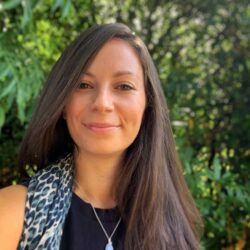
Diana Walsh

Diana Walsh
Diana obtained her Ph.D. in Molecular Genetics from the University of Birmingham, UK, where she used whole exome sequencing to investigate genetic variants associated with acrocallosal syndrome (a rare ciliopathy disorder), and pheochromocytoma and paraganglioma (neuroendocrine tumours). After her Ph.D., she joined the NHS (National Health Service), working as a Clinical Scientist in the West Midlands Regional Genetics Laboratories in Birmingham. During this time, she worked across the inherited cancer and rare disease programs, and worked on numerous clinical services including, breast cancer, colorectal cancer, inherited cardiac disorders, Huntington disease, myotonic dystrophy and spinal muscular atrophy. She also analyzed whole genome sequencing data from the 100,000 Genomes Project – aiming to establish a diagnosis for patients with rare genetic disorders by identifying causal variants. Diana published two first author articles during her Masters and Ph.D. and has contributed as a co-author to several other manuscripts. Diana joined Life Science Editors in 2022.
Illustrators
-
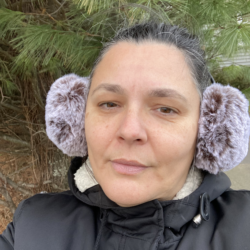
Gloria Fuentes

Gloria Fuentes
Gloria holds a Ph.D. in Molecular Biology from the Autonomous University of Madrid, Spain. Throughout her scientific career, she has worked at the intersection of Structural Computational Biology and Biomedicine. She has undertaken research in various countries including the UK, The Netherlands, Spain, Singapore, and Japan, which has given her a diverse perspective on science and life. In 2018, Gloria decided to make a career shift and pursued her interest in the illustration and animation world. She obtained master’s degrees in Scientific Illustration and 3D Animation, to bridge the communication gap between the scientific community and society. Her motto is, “Let’s unleash creativity to bridge the gap between science and society. If I can illustrate it, you can understand it.” Gloria joined Life Science Editors in 2024.
-
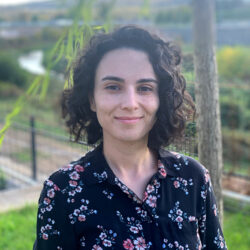
Duygu Koldere Vilain

Duygu Koldere Vilain
Duygu obtained her MSc in Molecular Biology and Genetics at Bogazici University, Istanbul, studying planar cell polarity in fruit fly Drosophila melanogaster eye. Then she joined Stein Aerts lab in KU Leuven and studied gene regulatory networks in fruit flies exploiting single cell RNA sequencing. She left before completing her PhD to return home and since then has been pursuing her passion for illustrations and helping scientists to communicate their research visually. She joined Life Science Editors in 2021.
Alumni
-
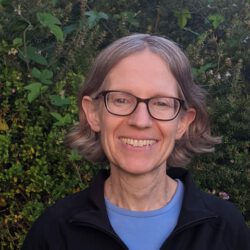
Ilil Carmi

Ilil Carmi
Over her academic career, Ilil contributed to publications in Nature and Genetics. She was an editor at various journals with Cell Press for over 22 years, including Cell and Developmental Cell, and contributed to a number of editorials, such as “A Space for Women’s Voices”. She worked with Life Science Editors from 2022-2023, and is now Research Development Strategist and Grant Writer at the Stanford Cancer Institute. Ilil also volunteers for the Life Science Editors Foundation.
-
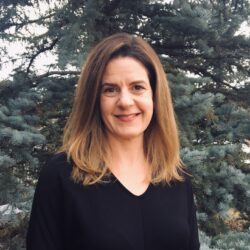
Shawna Hiley

Shawna Hiley
Over the course of Shawna’s academic career, she contributed to publications in JMB, Molecular Cell, Cell, and NAR, among others. She was also a Post Secondary Educator at Centennial College, Canada, and a Scientific Editor at Life Science Editors from 2018-2022. Currently, she is Scientific Editor and Communication Strategist at Caltech, with the Guttman Lab. Shawna also serves as a JEDI Award Program Manager with the Life Science Editors Foundation.
-
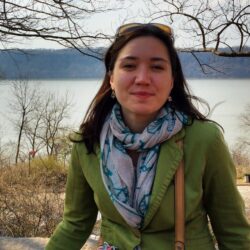
Rosy Hosking

Rosy Hosking
Rosy obtained her Ph.D. in cell biology at the MRC Laboratory for Molecular Cell Biology at University College, London, where she studied the adherens junction and the intracellular roles of p120 catenin. She transitioned to a role in scientific publishing in 2008, working at Trends in Cell Biology and BMC Medicine in London, before moving to Boston, MA to take on a role as a scientific editor for the journal Cell in 2014. Currently, Rosy is the Associate Director, Scientific Communications and Outreach, at the Stanley Center for Psychiatric Research at the Broad Institute. She was with Life Science Editors from 2022-2023.
-
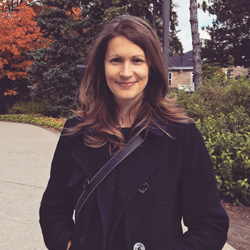
Heather Kinkaid

Heather Kinkaid
Heather obtained her Ph.D. from the Department of Integrative Biology at the University of Guelph, Canada, where she studied wild animals in captivity and identified species-level biological risk factors for health or behaviour outcomes. Professionally, Heather has focused on science communication, initially working as a scientific writer and editor at the Toronto General Hospital Research Institute. She later spent three years as a medical writer, creating and reviewing educational content for pharmaceutical products in oncology and hematology. She then transitioned back to academic writing and editing in a freelance grant development role with the University of Toronto Research Services Office, followed by a full-time role at Mount Sinai Hospital, Toronto. Heather has contributed to publications in diverse fields like stem cell biology, behaviour, regenerative medicine, and neonatology, including papers appearing in notable journals like Circulation, Cell Stem Cell, Journal of Clinical Investigation, and the JAMA and Lancet journals. She was with Life Science Editors from 2022-2023.
-
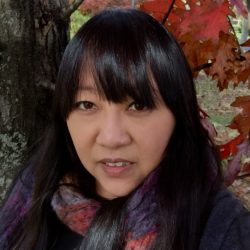
Cindy Lu

Cindy Lu
Cindy obtained her Ph.D. in Molecular and Cellular Biology from Harvard University (Cambridge, MA), studying early axis formation in mouse embryos. Her postdoctoral research in the Department of Neurobiology at Harvard Medical School (Boston, MA) focused on auditory circuit assembly and function. She has contributed to articles published in Nature and Developmental Cell, and published first author papers in Journal of Neuroscience and Development. She was an editor at Cell for three years, and a scientific editor with Life Science Editors from 2019-2023.
-
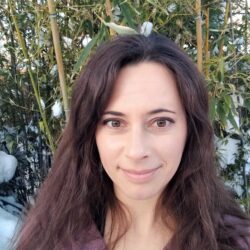
Rebecca Parker

Rebecca Parker
Currently a Medical Writer and Editor, ARUP Laboratories.
-
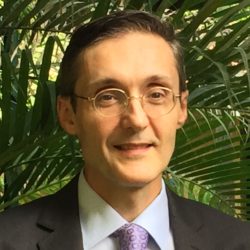
Guy Riddihough

Guy Riddihough
During his academic career, Guy contributed to papers in Genes & Development, MCB, and EMBO Journal. Guy was an editor at Nature, and launched and edited Nature Structural Biology (now NSMB). He then became an editor at PNAS, and finally a senior editor at Science for 16 years. He worked with Life Science Editors from 2017-2023, and is now a full time science fiction author. He published his first book, The Glass Weaver’s Tale and Other Stories, in April, 2023. You can purchase it here.
-
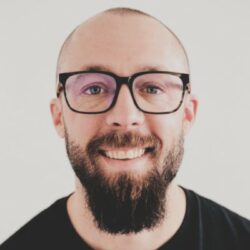
Matt Velinder

Matt Velinder
Over his scientific career, Matt’s research has largely focused on human genetics and gene regulation. This has included both germline and somatic genetic variation in the context of numerous inherited and sporadic diseases. Matt has contributed to the discovery of multiple new gene:disease associations and novel biological functions of genes. Matt worked with Life Science Editors for 3 years. Matt now applies his scientific curiosity and insights in the context of neuroimmune axis disorders as the Director of Genomic Research at Metrodora Institute.